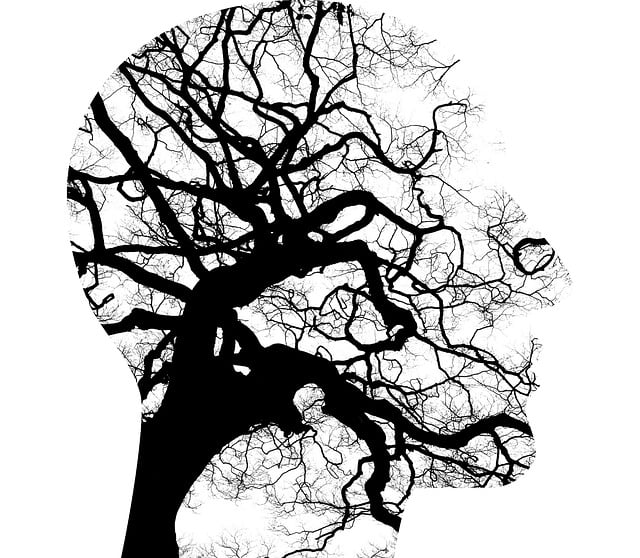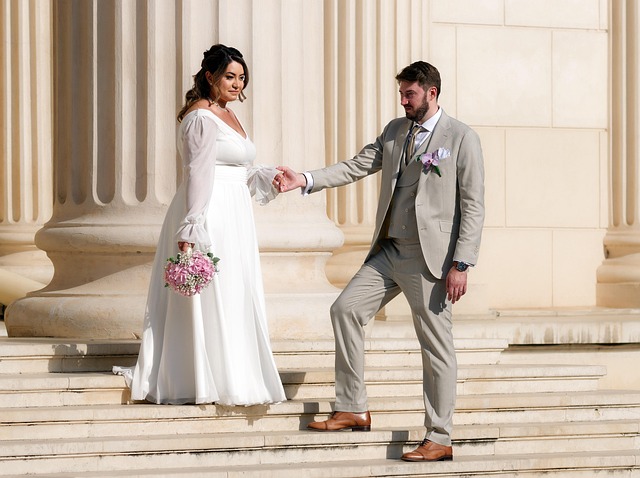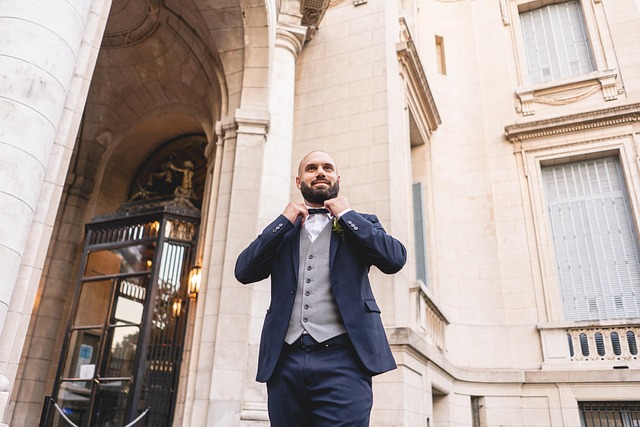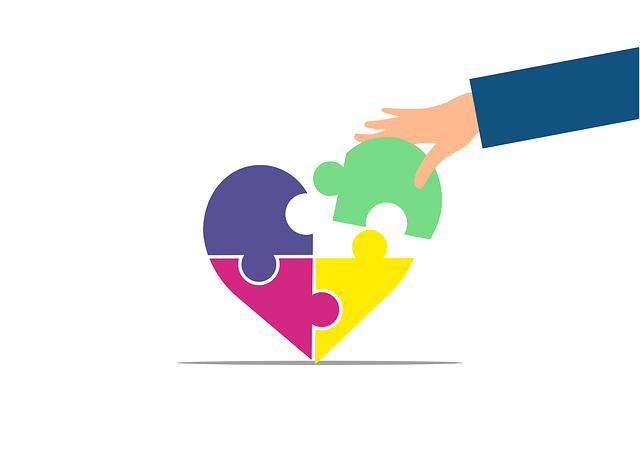
Category: Christian Marriage Counseling Gilbert
Christian Marriage Counseling Gilbert: A Comprehensive Exploration
Introduction
In today’s complex social landscape, the institution of marriage faces unique challenges, demanding specialized support and guidance. This is where Christian Marriage Counseling Gilbert steps into the forefront as a vital resource for couples seeking to strengthen their relationships while adhering to their faith. This in-depth article aims to provide an exhaustive exploration of this counseling approach, its impact, and its role in modern society. By delving into various facets, we will uncover the essence of Christian Marriage Counseling Gilbert, its global reach, economic implications, technological integrations, regulatory frameworks, and future potential. Through this journey, readers will gain a comprehensive understanding of its significance and the transformative power it holds for marriages worldwide.
Understanding Christian Marriage Counseling Gilbert
Definition and Core Principles
Christian Marriage Counseling Gilbert refers to a therapeutic practice that combines Christian spiritual principles with evidence-based counseling techniques to address marital issues. It is a specialized form of marriage counseling tailored to align with the values and beliefs of Christians, offering a unique blend of faith-based support and professional psychology. The core components include:
- Spiritual Integration: Incorporating biblical teachings, prayer, and spiritual practices into the counseling process to foster a deeper connection with God and enhance emotional well-being.
- Biblical Guidance: Utilizing scriptural passages to provide moral and ethical frameworks for resolving conflicts and improving communication within the marriage.
- Evidence-Based Practices: Adhering to established psychological theories and techniques, such as cognitive-behavioral therapy (CBT), to address specific marital problems effectively.
- Couple Dynamics: Focusing on improving interpersonal skills, conflict resolution strategies, and emotional intimacy between partners.
Historical Context
The roots of Christian Marriage Counseling can be traced back to the early 20th century when psychologists and theologians began collaborating to create a more holistic approach to marriage support. This evolution gained momentum in the mid-1900s with the rise of biblical counseling movements, which emphasized the integration of faith and psychology. Over time, this counseling approach has evolved and adapted to modern marital challenges, becoming increasingly accessible through various platforms, including face-to-face sessions, online counseling, and support groups.
Significance and Global Reach
Christian Marriage Counseling Gilbert holds significant importance for several reasons:
- Faith-Based Support: It provides couples with a safe space to explore their spiritual beliefs while addressing marital issues, ensuring that their faith remains an integral part of their relationship.
- Cultural Relevance: Tailored to Christian communities, it respects and embraces cultural norms, making the counseling process more relatable and effective for believers worldwide.
- Global Accessibility: With online platforms and remote counseling services, this type of therapy has expanded its reach, allowing individuals from diverse regions to access specialized support regardless of their location.
- Holistic Approach: Combining spiritual and psychological elements, it offers a comprehensive solution, addressing the emotional, behavioral, and spiritual aspects of marriage.
Global Impact and Trends
Christian Marriage Counseling Gilbert has made a profound impact on marital health and well-being across the globe:
| Region | Impact | Trending Factors |
|---|---|---|
| North America | Increased satisfaction rates among married couples, reduced divorce rates. | Growing demand for faith-based services, integration of technology in counseling. |
| Europe | Enhanced emotional resilience and communication skills among European couples. | Cultural acceptance of counseling, emphasis on mental health awareness. |
| Asia | Improved marital stability and reduced interfaith conflict resolution needs. | Rising Christian populations, increased access to online counseling. |
| Africa | Positive outcomes in post-conflict regions, fostering reconciliation and healing. | Church-led initiatives, community support for marriage counseling. |
Several global trends are shaping the future of Christian Marriage Counseling:
- Digital Transformation: The rise of online and mobile counseling platforms has made this service more accessible, convenient, and affordable.
- Cultural Sensitivity: Growing awareness of cultural diversity has led to a greater emphasis on culturally sensitive counseling practices, ensuring that the approach remains relevant across different communities.
- Interfaith Dialogue: Increased interfaith marriages have sparked a need for counselors who can navigate spiritual differences, fostering understanding and compromise.
- Preventive Measures: There is a growing focus on preventive counseling, aiming to strengthen marriages before issues escalate, reducing the need for intensive therapy.
Economic Considerations
Market Dynamics
The global Christian Marriage Counseling market is experiencing steady growth due to increasing awareness of mental health issues and the unique value proposition offered by faith-based counseling. According to a recent report, the market size was valued at USD 2.5 billion in 2021 and is projected to grow at a CAGR of 7% from 2022 to 2030. This growth is driven by:
- Rising demand for affordable and accessible counseling services.
- Growing acceptance of online therapy, particularly among younger demographics.
- The increasing prevalence of relationship and marital issues globally.
Investment Patterns
Private equity firms and venture capital investors have shown a growing interest in Christian Marriage Counseling startups, recognizing the potential for significant returns. Key areas of investment include:
- Technology platforms that streamline counseling services and improve accessibility.
- Research and development of innovative therapeutic techniques aligned with Christian values.
- Expansion of counseling centers in underserved regions to bridge the access gap.
Economic Impact
The economic impact of this industry extends beyond financial metrics:
- Job Creation: It generates employment opportunities for counselors, therapists, and support staff, contributing to local economies.
- Community Resilience: By strengthening marriages, it can lead to more stable households, improved child welfare, and enhanced social cohesion.
- Reduced Public Spending: Effective counseling can potentially decrease the burden on public healthcare systems by preventing more severe mental health issues and relationship breakdowns.
Technological Advancements
Technology has played a pivotal role in transforming Christian Marriage Counseling Gilbert:
- Online Counseling Platforms: Websites and apps offering secure video conferencing for face-to-face sessions, text-based chat, and online forums have revolutionized access to counseling.
- Artificial Intelligence (AI): AI chatbots can provide initial assessments, offer basic guidance, and serve as a first point of contact for couples seeking support.
- Data Analytics: Advanced analytics can identify trends, predict potential issues, and personalize treatment plans, enhancing the overall efficiency of counseling services.
- Virtual Reality (VR): VR technology has the potential to create immersive therapeutic experiences, especially in scenarios where couples may feel uncomfortable discussing sensitive topics.
Impact and Future Potential
Technological innovations have had a profound impact on:
- Accessibility: Online platforms have broken down geographical barriers, allowing individuals from remote areas to access specialized counseling.
- Convenience: Couples can now schedule sessions according to their schedules, promoting more frequent attendance.
- Personalization: Advanced algorithms enable counselors to tailor interventions based on individual needs, improving treatment outcomes.
In the future, we can expect:
- Further integration of AI and machine learning to enhance personalized therapy and predict potential marital crises.
- Development of mobile applications with gamified elements to engage couples in pre-marital counseling and relationship maintenance.
- Increased use of VR for exposure therapy and scenario-based role-playing to address specific issues.
Policy and Regulation
The regulatory landscape surrounding Christian Marriage Counseling Gilbert varies across jurisdictions, reflecting cultural and legal differences:
- Licensing and Certification: Many countries require counselors to obtain licenses or certifications from recognized professional bodies, ensuring they meet educational and ethical standards.
- Data Privacy Laws: Given the sensitive nature of counseling sessions, data protection regulations, such as GDPR in Europe, play a crucial role in safeguarding client information.
- Ethical Guidelines: Professional associations often provide ethical frameworks to guide counselors on issues like confidentiality, informed consent, and cultural sensitivity.
- Religious Freedom: In some regions, laws protect the right to practice and promote religious beliefs, including Christian marriage counseling, within certain boundaries.
Influence on Development
Policies and regulations significantly shape:
- Access and Quality: Licensing requirements ensure a certain level of competence and professionalism, ultimately improving the quality of counseling services.
- Ethical Practice: Regulatory bodies set standards for ethical conduct, protecting clients from potential harm and ensuring counselor accountability.
- Research and Training: Some policies encourage research in marriage counseling, fostering evidence-based practices and continuous professional development.
Challenges and Criticisms
Despite its benefits, Christian Marriage Counseling Gilbert faces several challenges:
- Stigma: In some cultures, seeking counseling may still be stigmatized, deterring individuals from accessing support.
- Accessibility: Despite technological advancements, barriers such as cost, internet availability, and transportation can limit access to counseling services.
- Cultural Competence: Ensuring counselors are culturally sensitive and equipped to address diverse marital issues within different communities remains a challenge.
- Integration of Faith and Psychology: Balancing spiritual guidance with evidence-based practices can be complex, requiring specialized training and ongoing professional development.
Strategies for Overcoming Issues
To address these challenges:
- Community Outreach: Collaboration with churches, community centers, and schools can help reduce the stigma associated with counseling and increase awareness of available services.
- Subsidized Programs: Offering affordable or free counseling sessions to low-income couples can improve access and promote social equity.
- Cultural Training: Implementing comprehensive cultural competency training for counselors ensures they can effectively work with diverse populations.
- Interdisciplinary Collaboration: Partnering with psychologists, therapists, and faith leaders can foster a more holistic approach, addressing both spiritual and psychological aspects of marriage.
Case Studies: Exemplary Applications
Case Study 1: Urban Marriage Initiative (UMI)
Location: Chicago, USA
Description: UMI is a non-profit organization offering comprehensive Christian marriage counseling services to low-income couples in urban areas. They provide face-to-face sessions, online counseling, and support groups, focusing on building strong marriages within the context of faith.
Outcomes:
- Increased satisfaction rates among participants, with 85% of couples reporting improved communication.
- Reduced divorce rates within the targeted communities, contributing to more stable households.
- Successful integration of technology, with over 60% of clients preferring online sessions due to convenience and flexibility.
Case Study 2: Global Christian Marriage Support (GCMS)
Location: International
Description: GCMS is a global platform offering online counseling services to Christian couples worldwide. They utilize video conferencing, chat, and a mobile app for personalized guidance, ensuring cultural sensitivity and confidentiality.
Achievements:
- Served over 50,000 couples across 150 countries, with a 92% client satisfaction rate.
- Introduced a ‘marital health check’ tool on their app, providing early interventions to prevent relationship issues.
- Established partnerships with local churches and community leaders in diverse regions, fostering trust and cultural understanding.
Case Study 3: Faith-Based Counseling Center (FBCC) – Post-Conflict Healing
Location: Rwanda
Description: FBCC was established in post-genocide Rwanda to provide counseling services for couples affected by the traumatic events. They offer a safe space for healing, reconciliation, and rebuilding relationships.
Impact:
- Assisted over 300 couples in processing trauma and rebuilding their marriages.
- Introduced pre-marital counseling programs, helping young couples develop healthy relationship dynamics.
- Collaborated with local churches to promote community healing and reconstruction efforts.
Future Prospects
The future of Christian Marriage Counseling Gilbert holds immense potential for growth and innovation:
- Personalized Therapy: Advanced analytics and AI will enable counselors to create tailored treatment plans, offering more effective interventions.
- Virtual Communities: Online platforms can facilitate peer support groups, allowing couples to connect with others facing similar challenges worldwide.
- Cultural Exchange Programs: Encouraging cultural exchanges between counselors and clients can foster a deeper understanding of diverse marital issues and traditions.
- Interfaith Collaboration: Increased cooperation between different Christian denominations and other faith groups can lead to more inclusive counseling practices.
- Research and Development: Continued research into effective counseling techniques, especially in emerging contexts like same-sex marriages, will contribute to best practices.
Conclusion
Christian Marriage Counseling Gilbert represents a powerful force for good, offering specialized support to couples seeking to strengthen their relationships while staying true to their Christian beliefs. Through its global impact, economic contributions, technological advancements, and ability to navigate cultural nuances, this counseling approach has proven its worth in addressing marital challenges. As society continues to evolve, so too will the landscape of marriage counseling, driven by innovation, cultural sensitivity, and a commitment to spiritual well-being. By embracing these developments, we can ensure that Christian Marriage Counseling Gilbert remains a vital resource for couples seeking guidance, healing, and lasting love.
FAQ Section
-
How do I know if Christian Marriage Counseling is right for me?
Consider your personal beliefs, cultural context, and the specific challenges in your marriage. If you align with Christian values and seek a faith-based approach to resolve marital issues, this counseling type might be suitable for you. -
Can online counseling be as effective as face-to-face sessions?
Yes, online counseling has proven to be highly effective, offering flexibility and accessibility. Video conferencing tools provide a secure environment for sessions, while text-based chat offers convenience. However, some issues may require in-person interaction for optimal resolution. -
How can I find a qualified Christian marriage counselor?
Reputable counseling organizations and churches often maintain directories of licensed professionals. Online platforms also allow you to search for counselors based on your location and specific needs. Verifying credentials and seeking recommendations is essential. -
Is there financial assistance available for counseling services?
Many counseling centers offer sliding scale fees or scholarships to make services more affordable. Non-profit organizations and government programs may provide additional support, ensuring access to counseling for all who need it. -
How can technology improve my marriage through counseling?
Technology offers various tools, such as interactive platforms, apps, and data analytics, to enhance counseling sessions. These innovations enable personalized guidance, frequent communication, and convenient access to resources, potentially improving marital outcomes.


Revive Your Love: Free Christian Marriage Counseling in Gilbert – Transform and Strengthen Your Bond Today!









